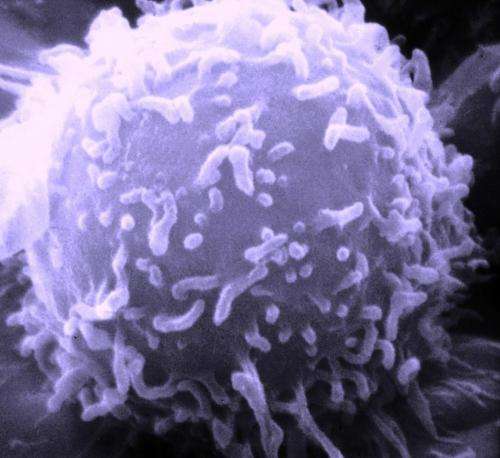Prostate cancer marker activates vascular and lymphangiogenic growth factors, contributors to the spread of cancer

A new study indicates that PSA, a prostate cancer marker, is one of the catalysts that activate vascular endothelial and lymphangiogenic growth factors which contribute to the spread of cancer.
Together with its partners, a research group led by Docent Michael Jeltsch at the University of Helsinki has discovered new mechanisms which activate the vascular endothelial and lymphangiogenic growth factors VEGF-C and VEGF-D. These growth factors play a central role not only in fetal development but in the spread of cancer and the formation of metastases.
Most fatalities caused by cancers that produce tumors—among others, prostate cancer—are specifically the result of metastases. Understanding the chain of events leading to the development of metastases, as well as the related key factors, is necessary for finding means to inhibit or halt the process.
The researchers discovered two new proteolytic enzymes (proteases) which are able to activate both growth factors, VEGF-C and VEGF-D. One of the enzymes is the prostate-specific antigen (PSA), which is also used as a marker for prostate cancer. In addition to the prostate, VEGF-C and PSA occur in semen, where they may have a reproductive impact, particularly on fertility.
The researchers also found that the cathepsin D protease is able to activate VEGF-C and VEGF-D. It was already previously known that cathepsin D is related to the formation of metastases, but detailed information on the mechanism of action has been lacking.
"These new findings provide a great deal of new information on the functioning of lymphangiogenic and vascular endothelial growth factors in general and specifically on their role in prostate cancer and reproductive biology," Jeltsch notes.
"In the future, our discoveries may help in both developing novel cancer drugs as well as identifying and treating mechanisms related to infertility."
More information: Sawan Kumar Jha et al. KLK3/PSA and cathepsin D activate VEGF-C and VEGF-D, eLife (2019). DOI: 10.7554/eLife.44478



















